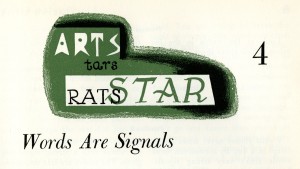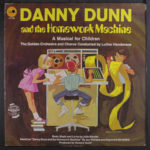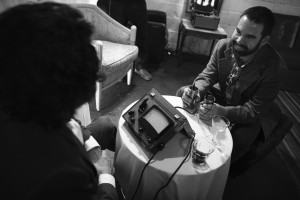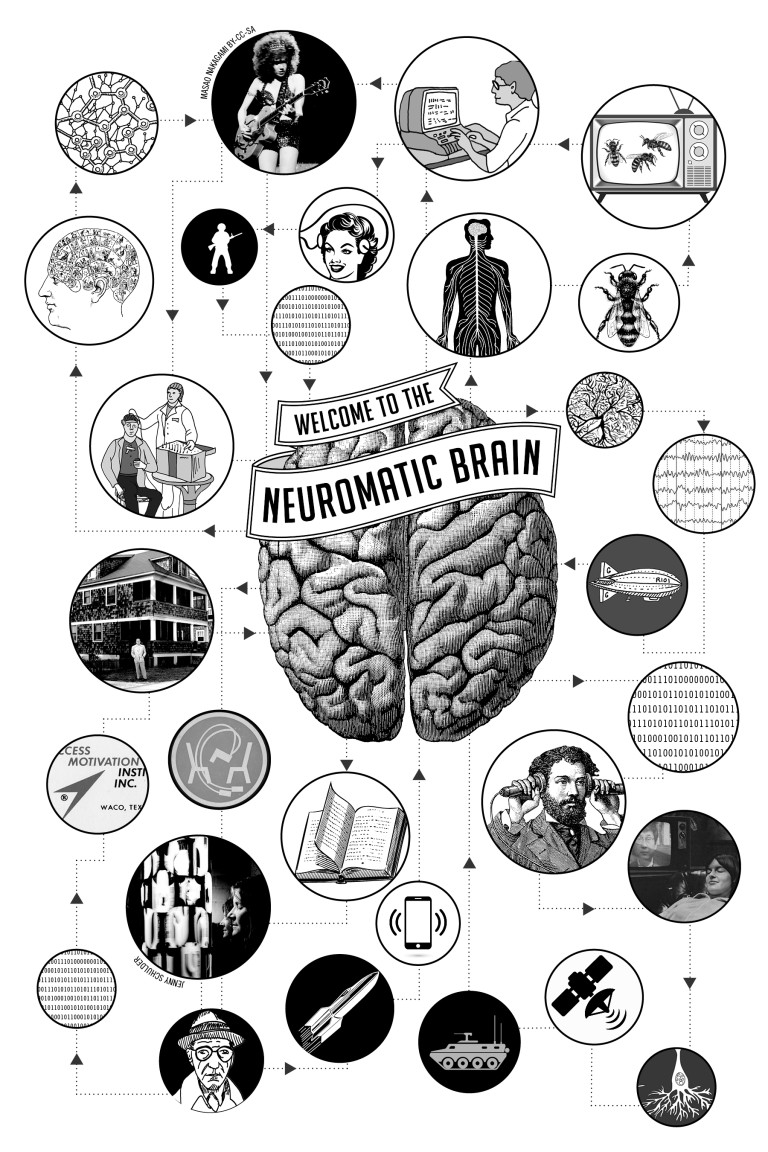Neuromatic; or, a particular history of religion and the brain
Miscellany, sundry ephemera, backstories, non-sequiturs from:
Neuromatic; or, a particular history of religion and the brain (University of Chicago Press, 2021)
________________________________________________________________________________
Press Play
for Soothing and Appropriate Background Music
REVIEWS
“This book is magisterial in scope—masterfully researched, carefully considered, subtly theorized, and energetically executed. Wrangling published, archival, and media sources into a deliberately nonlinear genealogy, Neuromatic will be essential for scholars of religion, history, philosophy, and science studies.”
― Mary-Jane Rubenstein, Wesleyan University
“Neuromatic is equal parts brilliant critical analysis and affectionate polemic. I strongly recommend it to my colleagues in the cognitive sciences who should know about the metaphysical skeletons in our closets. I recommend it to everyone else because reading it is so much fun.”
― Anthony Chemero, University of Cincinnati
“Neuromatic, though masquerading as both a poke at the smugness of supposedly secular science and a plea against reductionism, is up to something more interesting: anamnesis. It wants us to stop forgetting everything that went into making the brain the font of all order—pills, electro-shock therapy, EEGs, TV screens, cognitive anthropology and other findings from the twilight zone of cybernetics. With flashes of insight going off in an antic zigzag logic, Neuromatic fires on as many synapses as the “enchanted loom” of the brain itself. Modern, a library cormorant of the first order, provides a history of oddballs and kooks, including some heroes of postwar science, and I ended up not being able to tell them apart. I found my brain happily scrambled after reading this book. Neuromatic gleefully demonstrates how the effort to create binaries of pure-dirty, science-kookiness, truth-fabrication, sobriety-credulity, secular-religious fails again and again. An ultimately sane plea to linger in the midworld.”
― John Durham Peters, Yale University

Evelyn Nielsen Wood and Marjorie Wescott Barrows Reading Skills (New York: Henry Holt and Company, 1958)
Words are signals and reading a matter of information processing, they say. All books fungible with each and every other. Moving toward the immediate uptake of data.

The brain, they say, is the seat of the soul. The machines intuitively know this to be true. Network effects. An epistemology by any other name.
Scenes from the “Beat Hotel” at 9 rue Gît-le-Coeur, ca. 1963. Credit: Jenny Schulder
WARNING: THIS IS NOT AN ALLEGORY!
The basic structural element of NeuroMatic is the data folder, which resides inside Igor’s local memory known as the “root” directory. NeuroMatic Data Folders contain your acquired/imported/simulated data, Wave-Prefix Subfolders, Tab Subfolders and all other variables, waves and folders necessary to interact with NeuroMatic. If your data was acquired using NeuroMatic’s Clamp Tab, data folders will also contain the Stimulus Protocol Folder used to acquire your data and a copy of the acquisition Notes Folder.
What were you doing in 1956?
What was your mother’s brain doing? Your father’s?
What other brains have made their way in?
What language do they speak and did they seek permission?
What like a brain wave undeceives?
Wrong answers only.
Credit: Libby Modern
if you have gone this far down the rabbit hole you must realize by now that all of this goes toward explaining the story of Alpha and her brain. Forthcoming in Chad E. Seales, ed. The Routledge Handbook of Religion and American Culture. Taylor & Francis, 2025.











